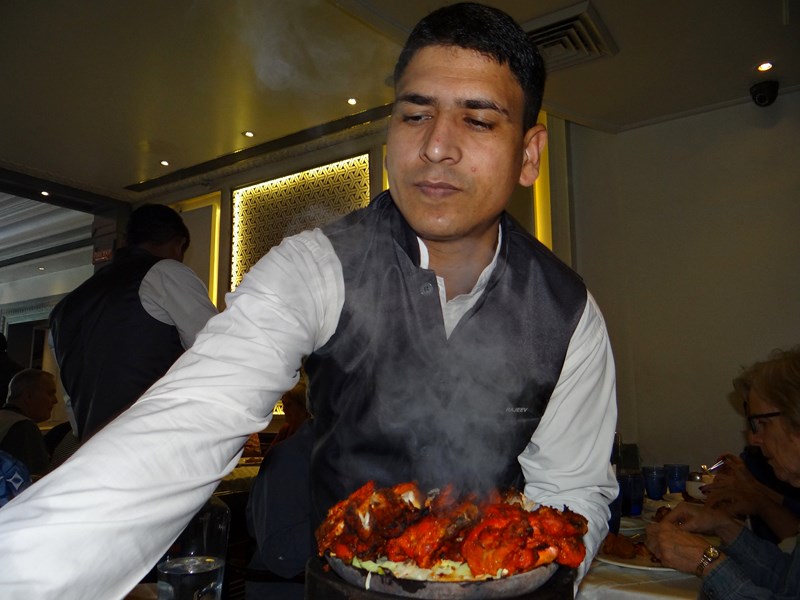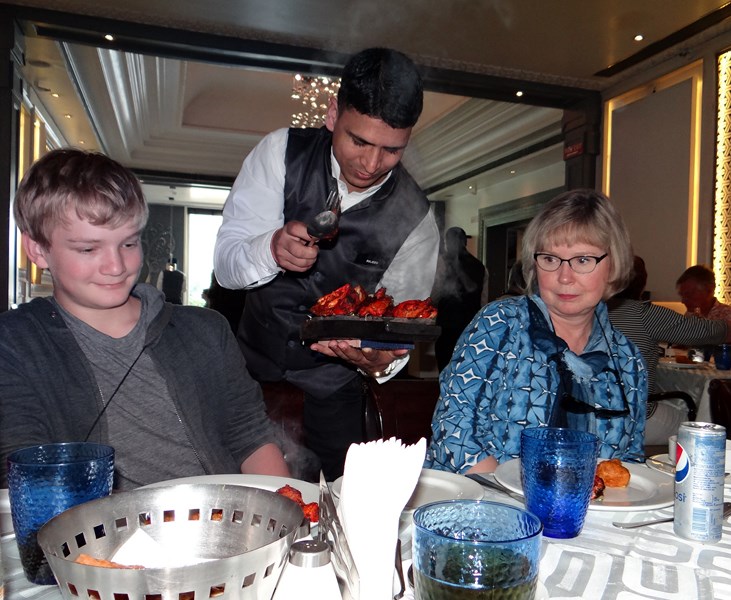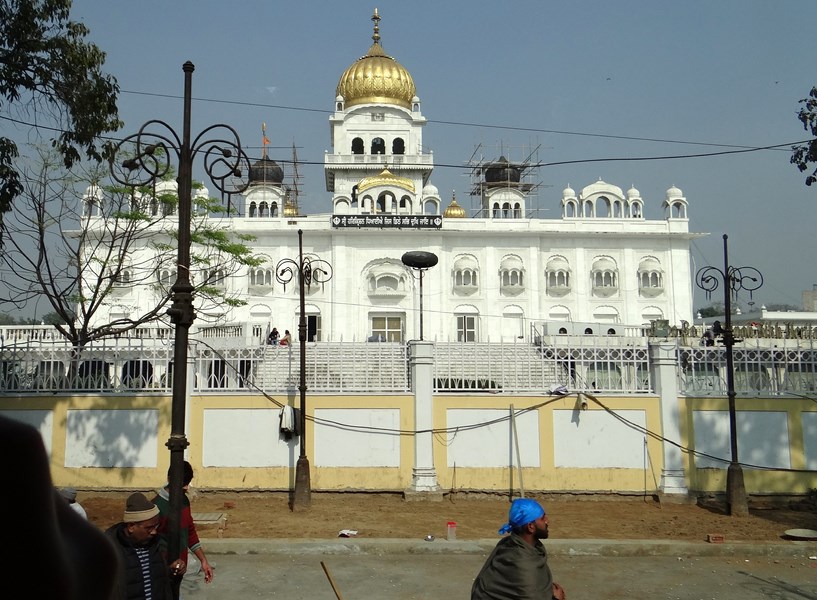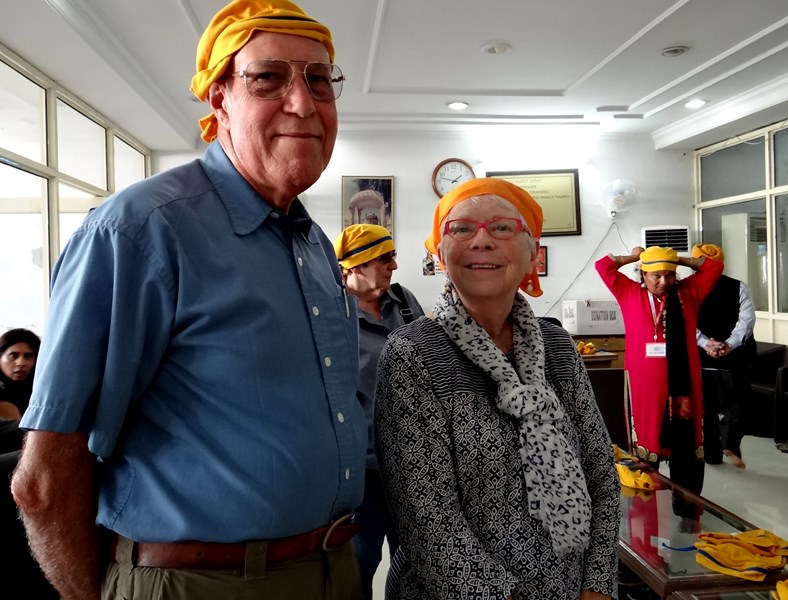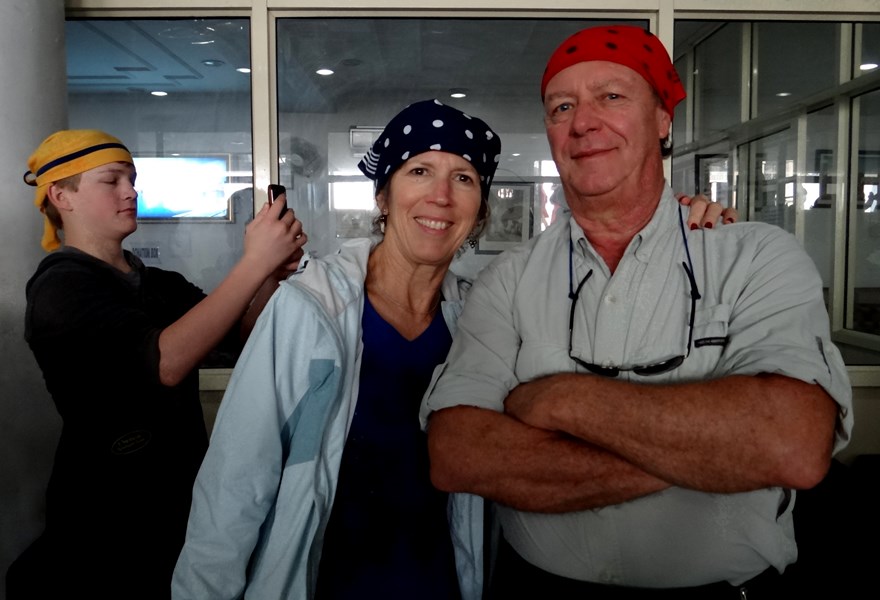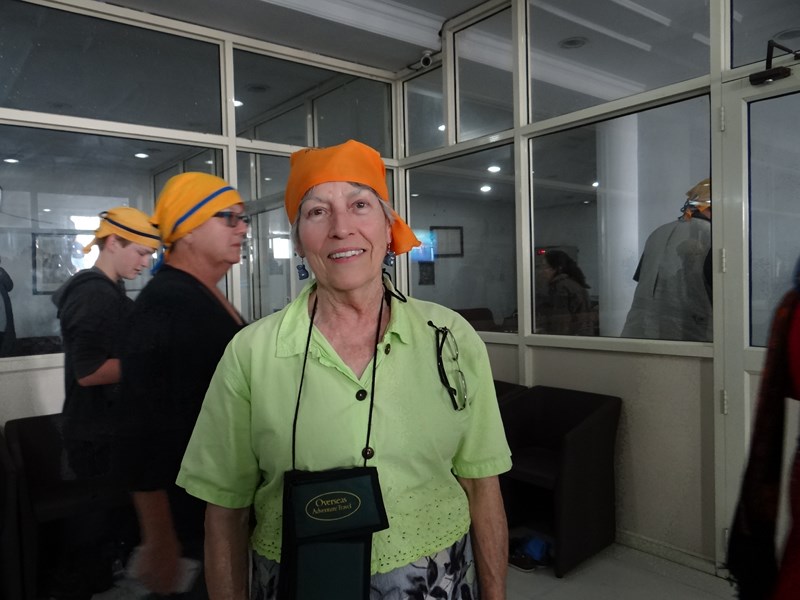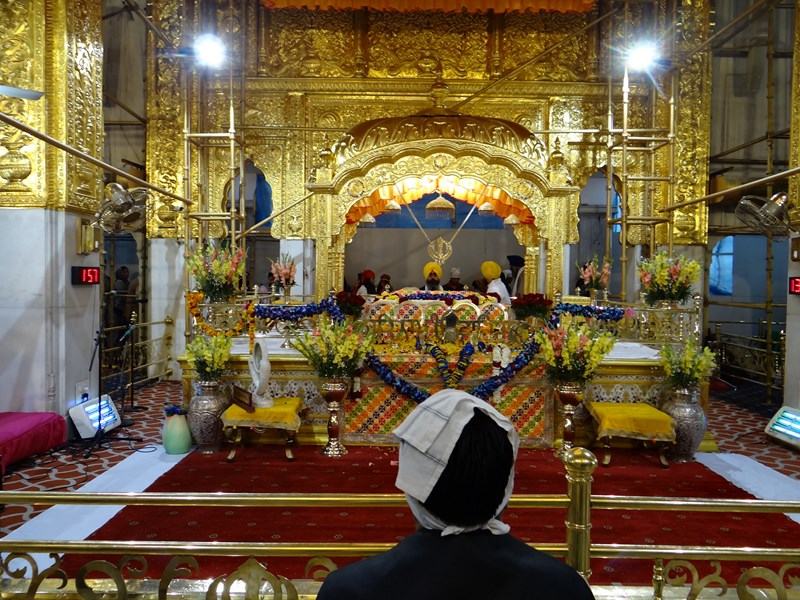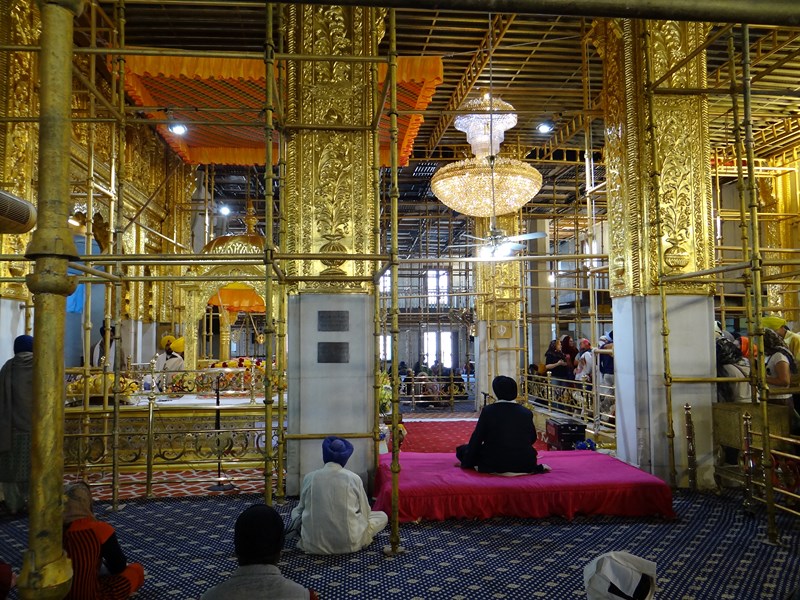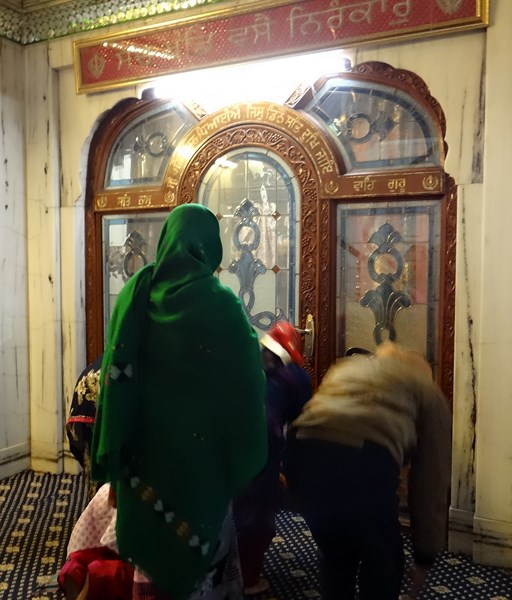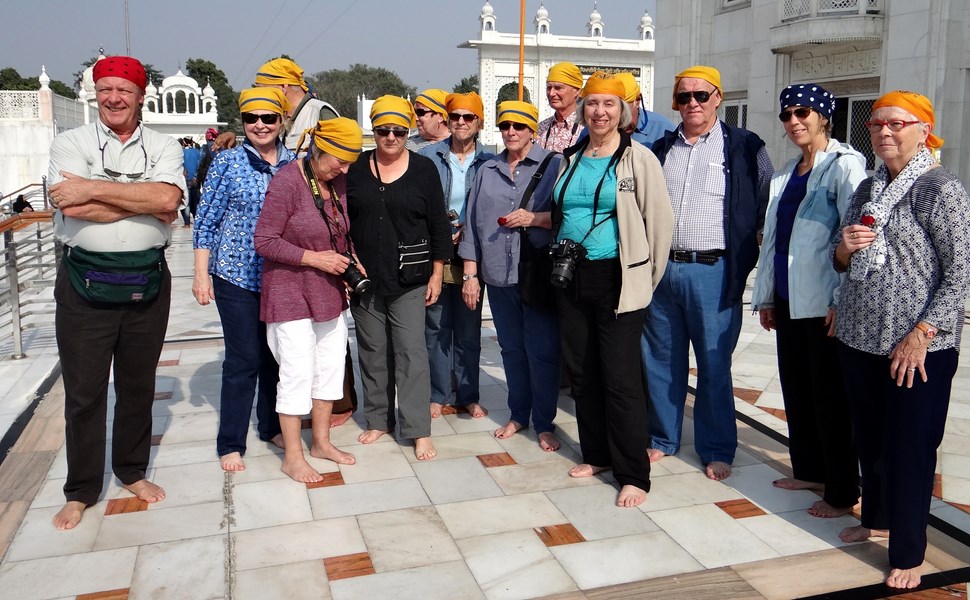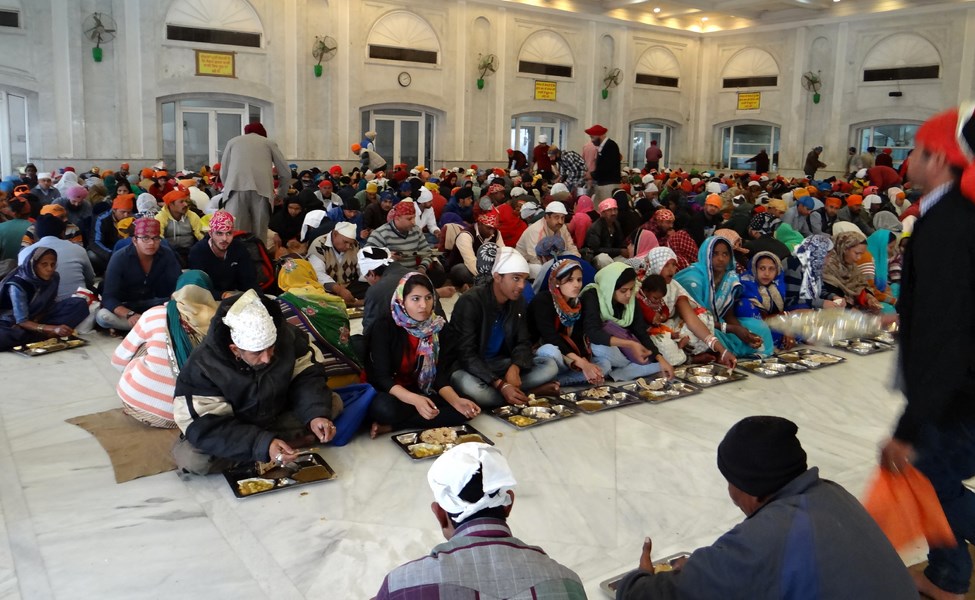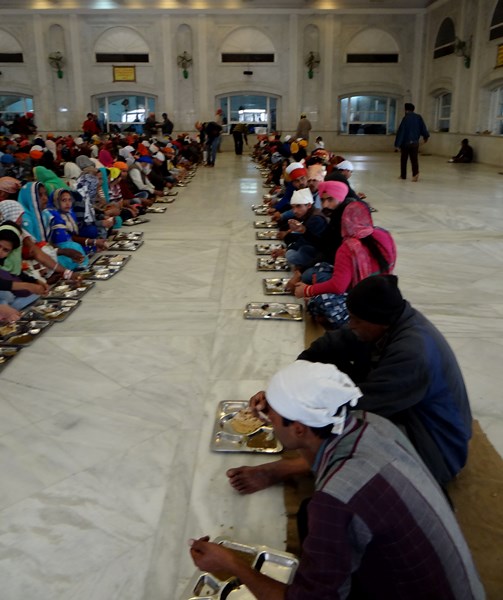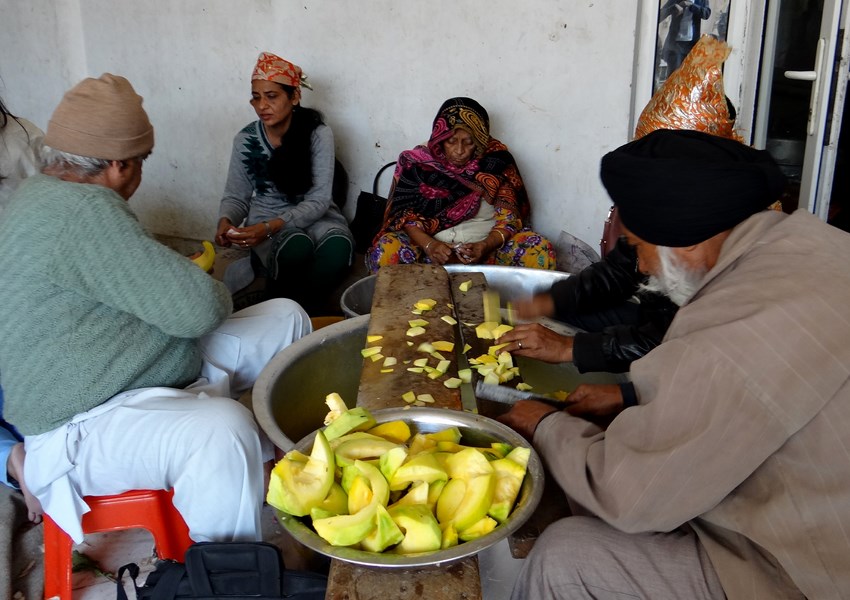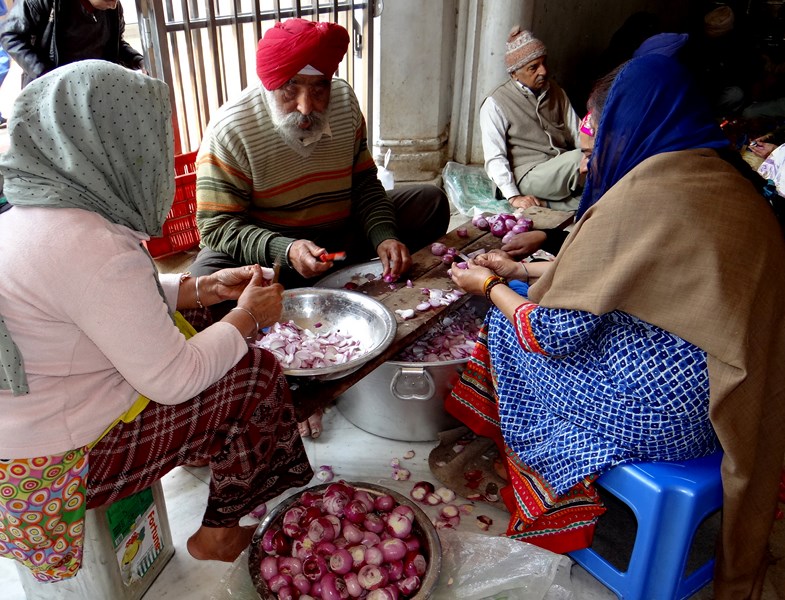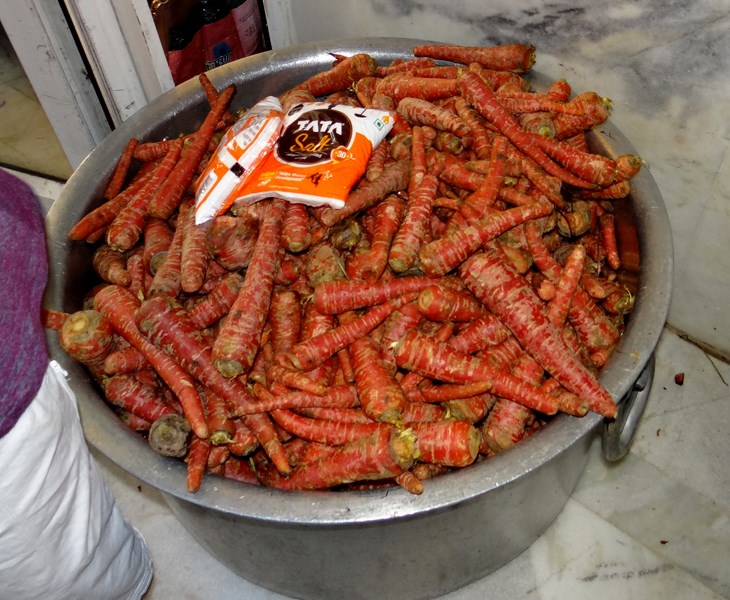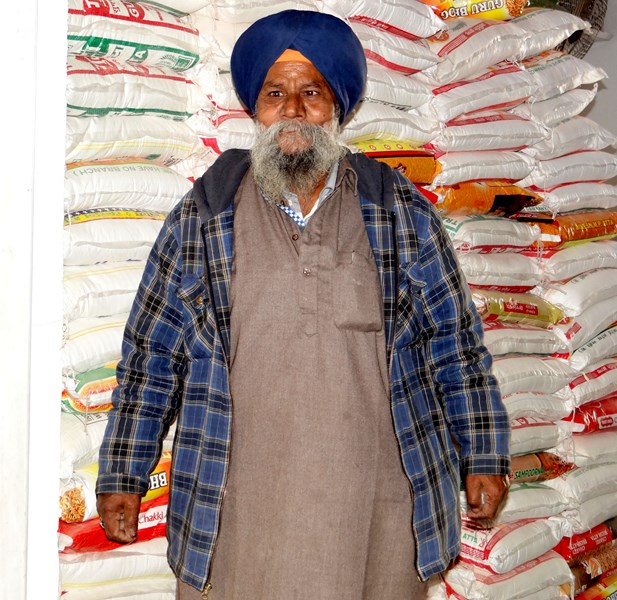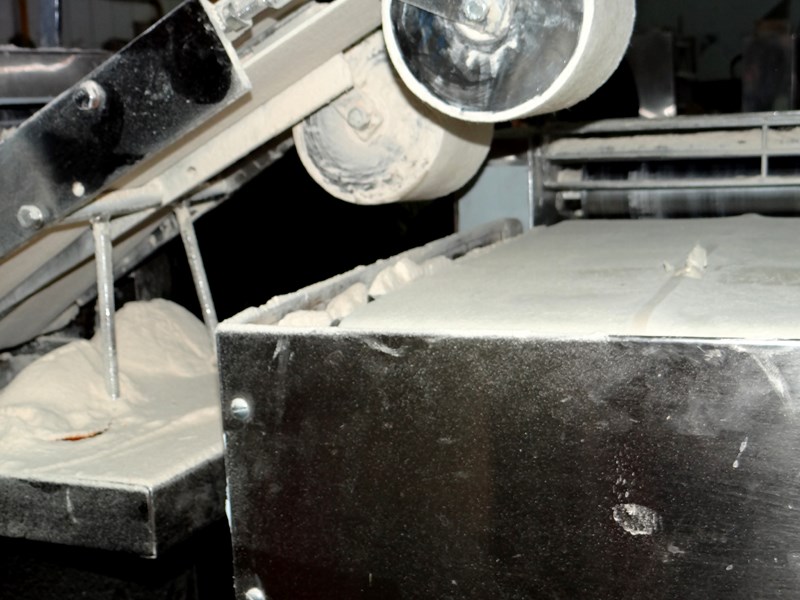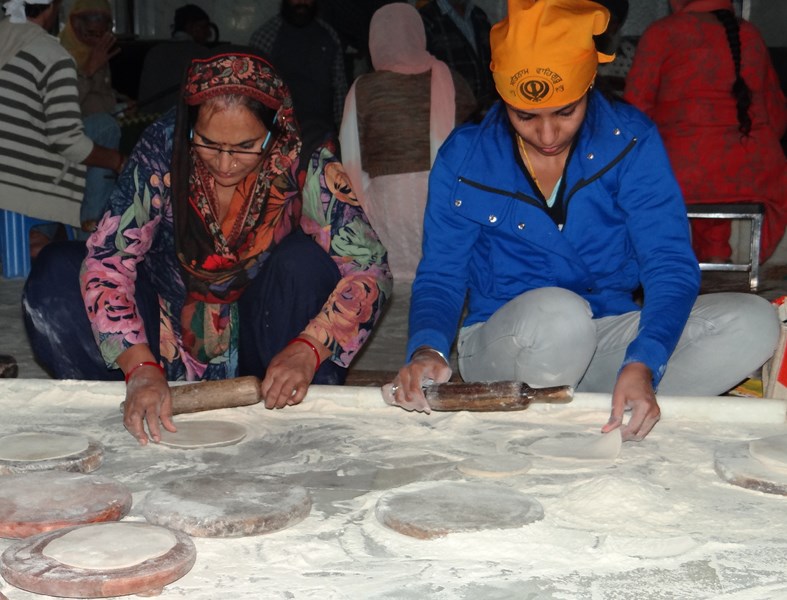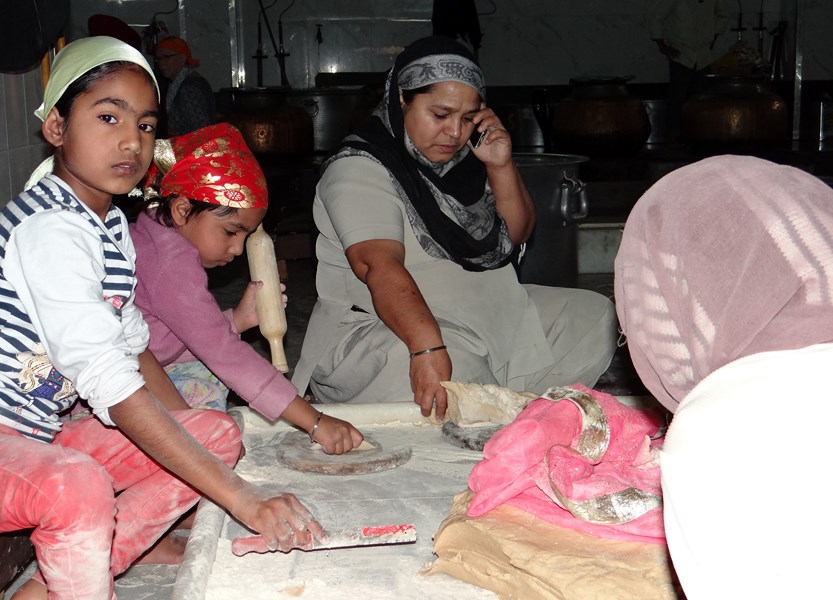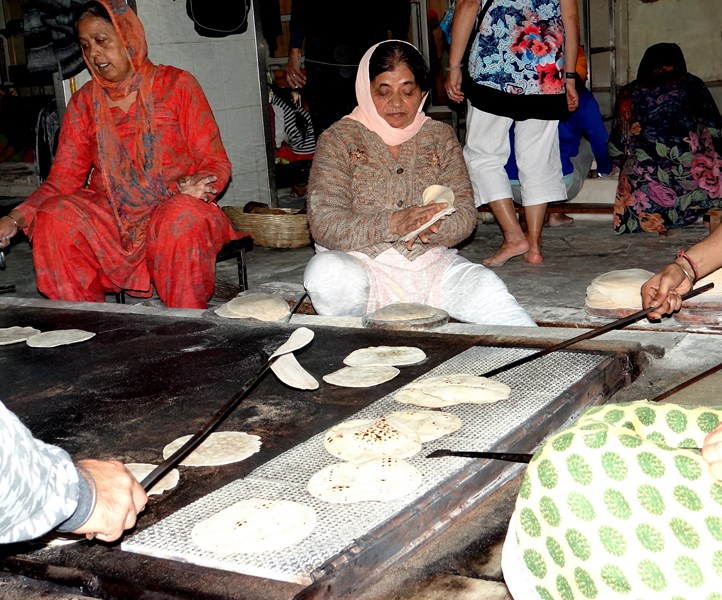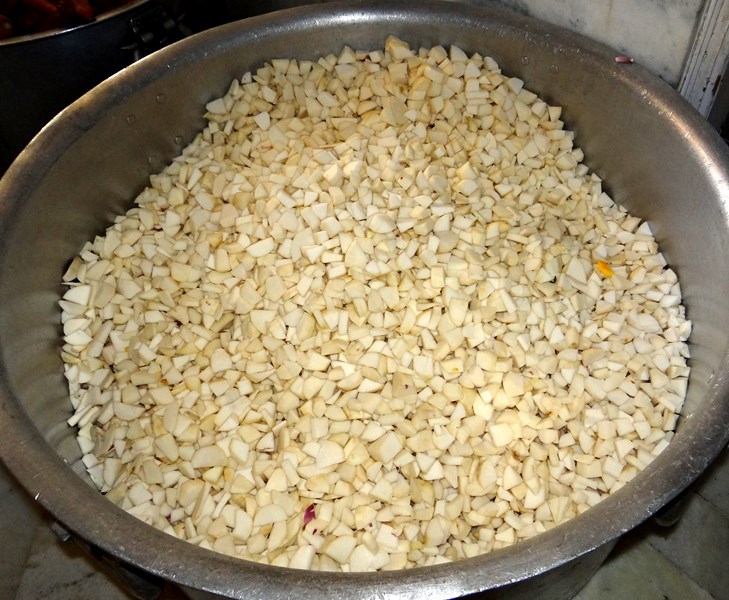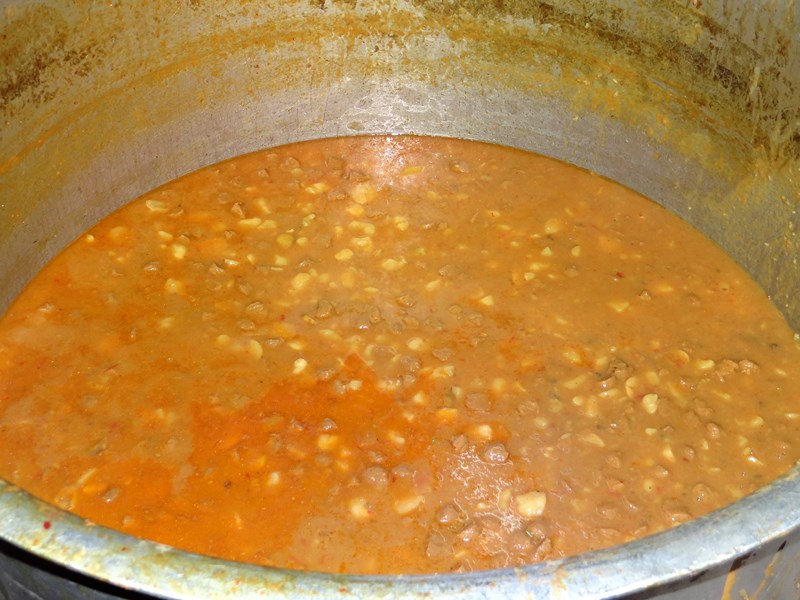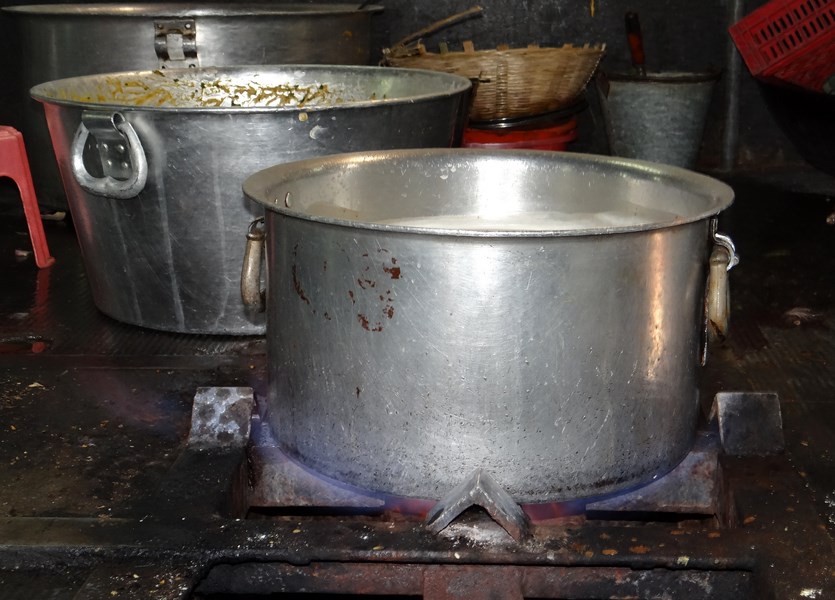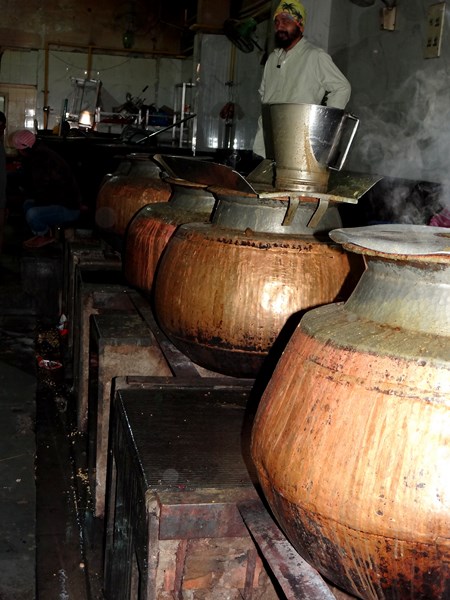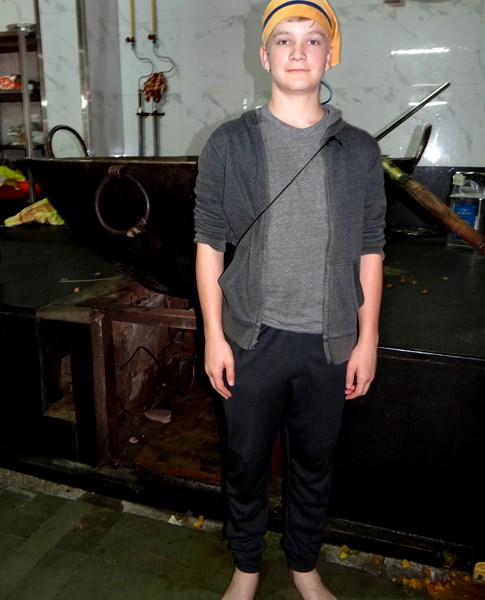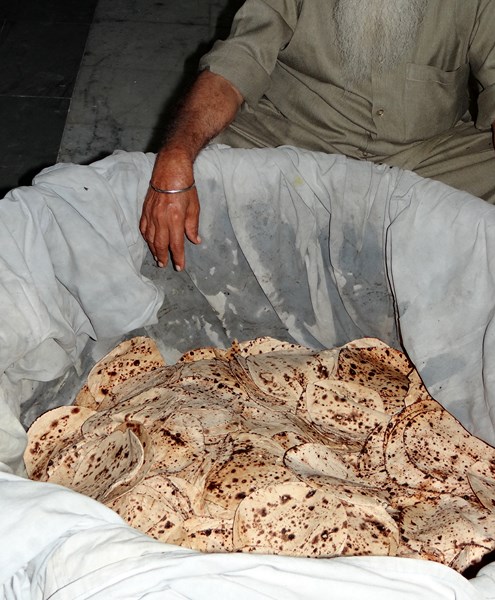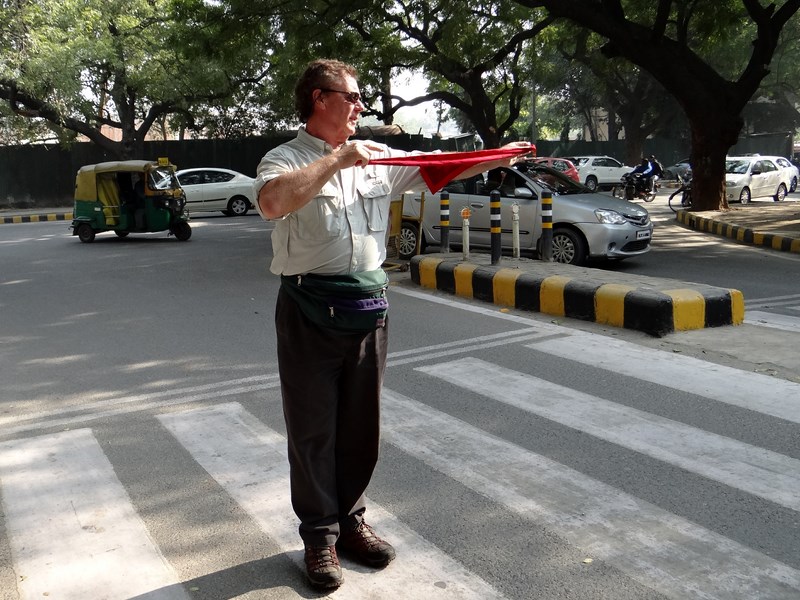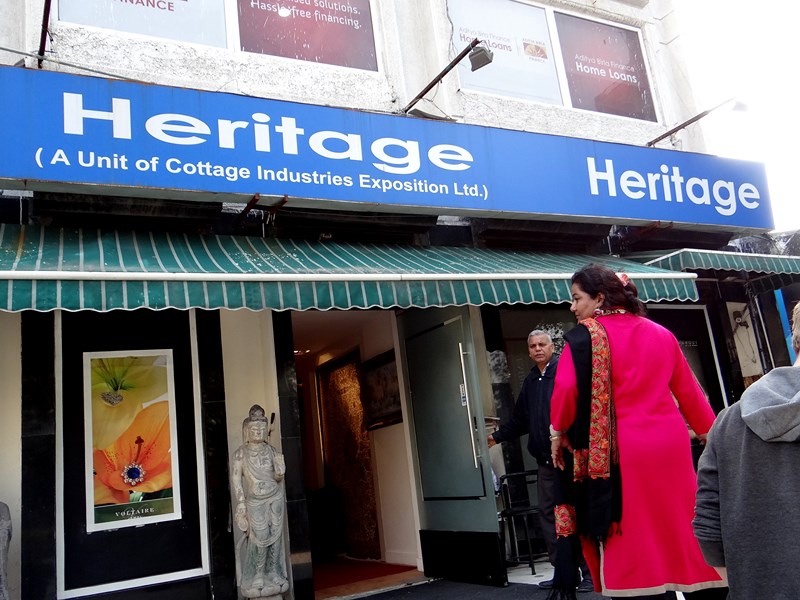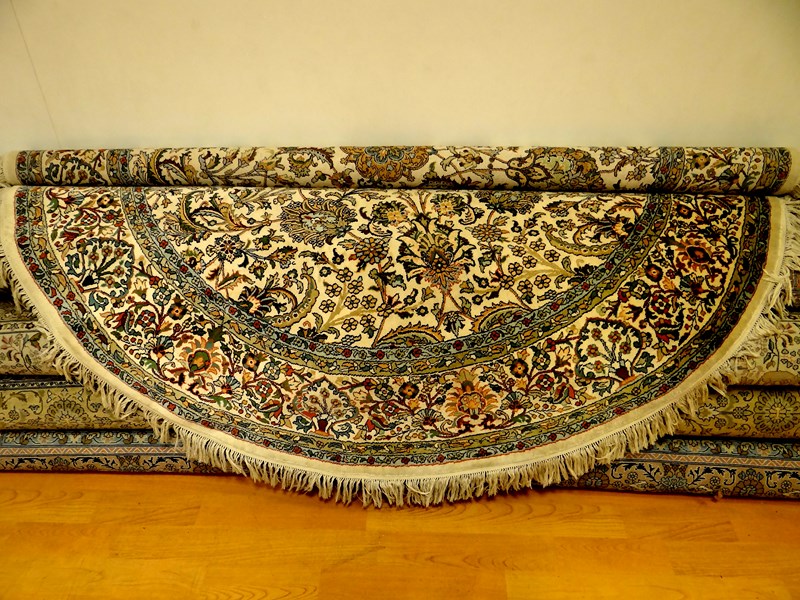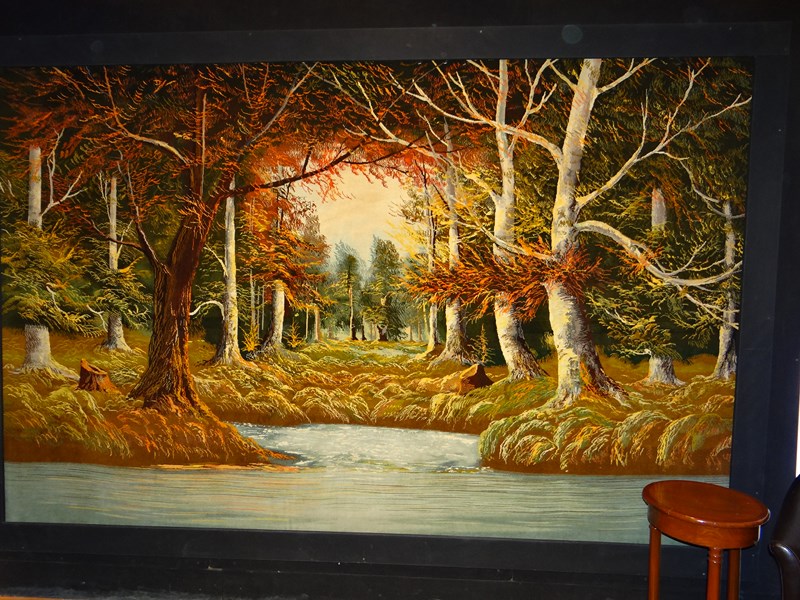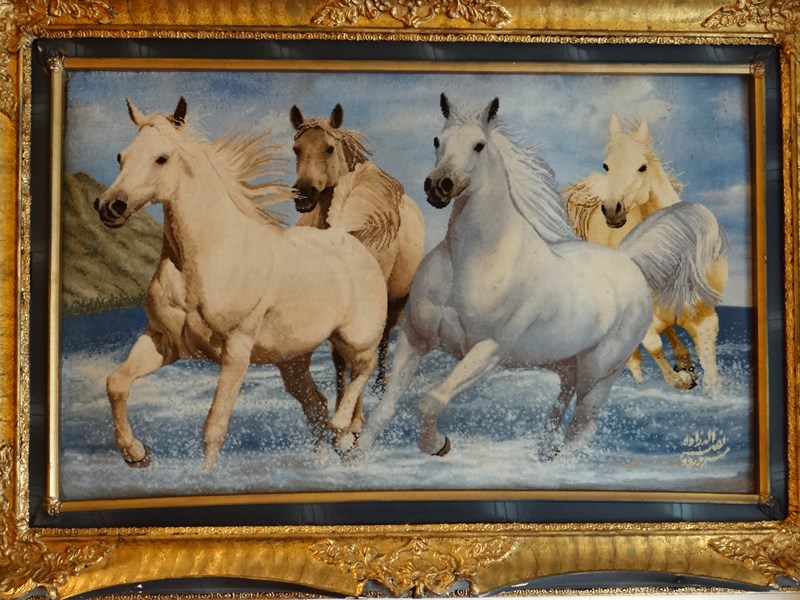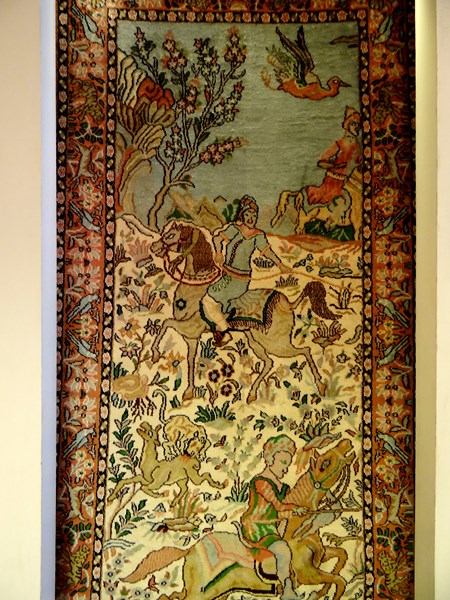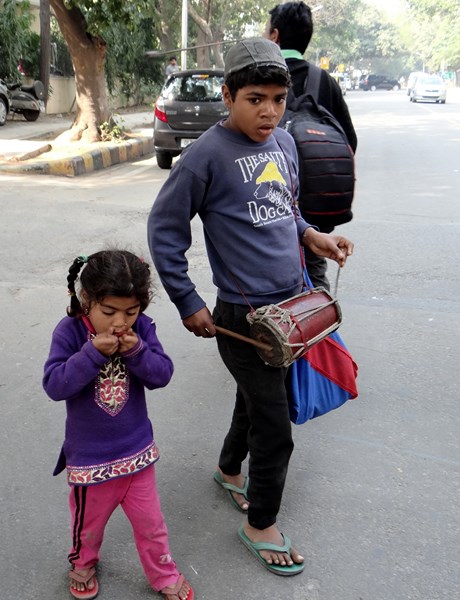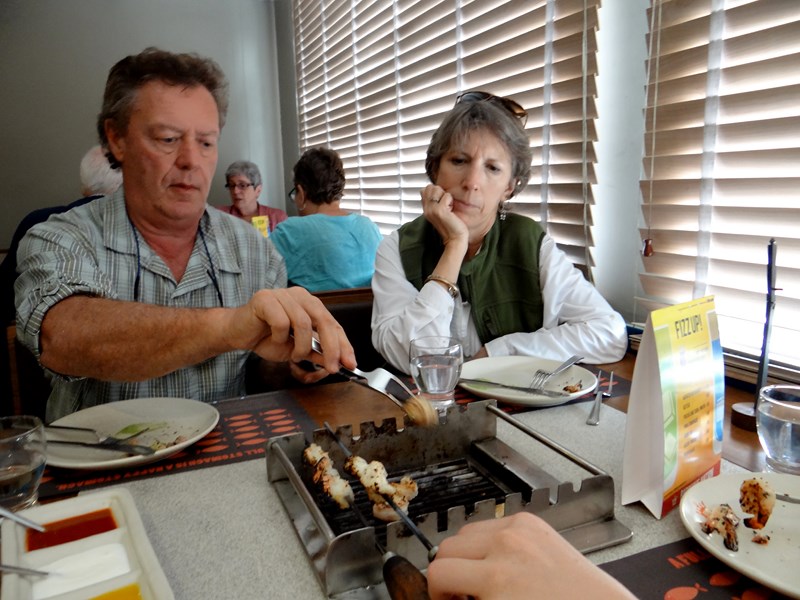
We fly to Jaipur and eat lunch at a barbecue restaurant before checking into our hotel. The waiters bring skewer after skewer of chicken, fish, beef and lamb to cook at special tables. It seems disconcerting to eat meat without the rice and vegetables we would normally put on our plate at the same time.
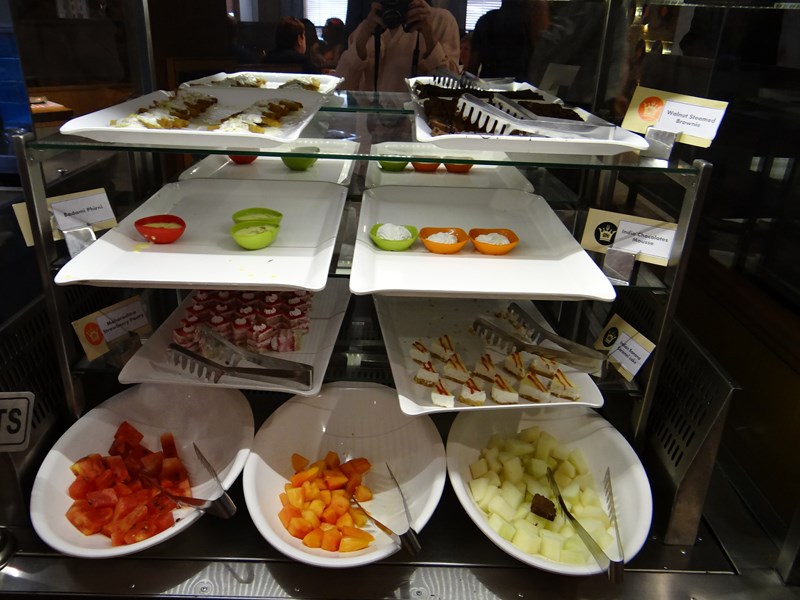
We eventually get to many wonderful buffet items and enjoy a sumptuous feast. They had great clay pots of lamb, beef, or chicken dahl along with the usual Indian specialties.
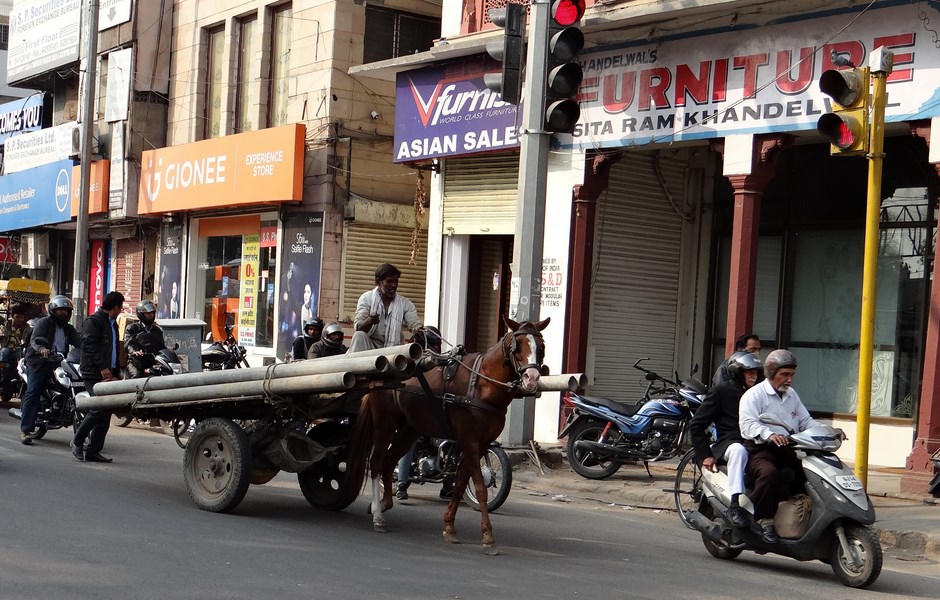
In the morning, Theo and I are scheduled for a Balloon ride, (optional event), but it is canceled because it is very hazy and visibility is poor. Instead, our bus takes us through this 300 year old city, the first planned city in India. Our city guide, Vinot tells us Jaipur has wide boulevard Streets, with shopping squares. It is the 10th largest city in India and has a modern metro where certain cars are reserved for women only. Special seats in every car are reserved for women.
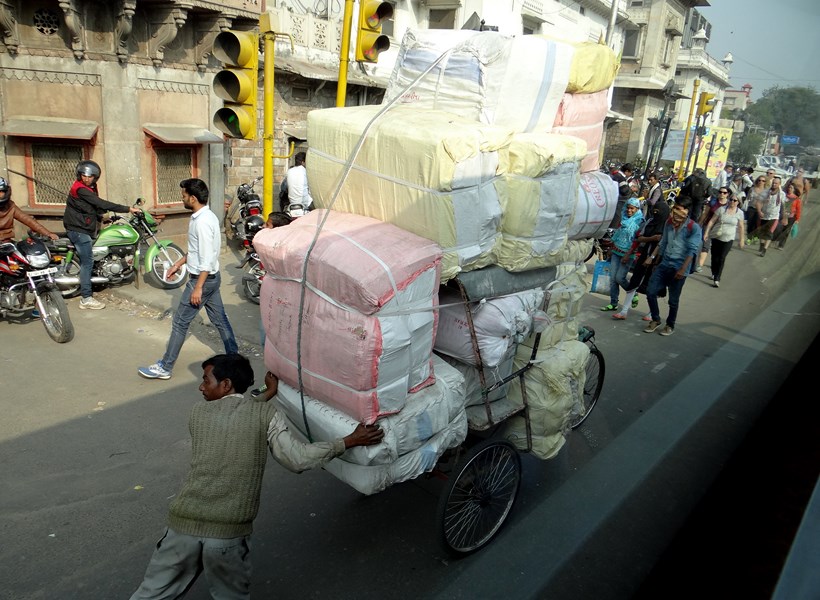
The loads and the streets are just as busy, but the streets are well paved and cleaner it seems to me. The city was planned by a Hindu Maharajah and the color pink was chosen for all major buildings. Jai means victory.
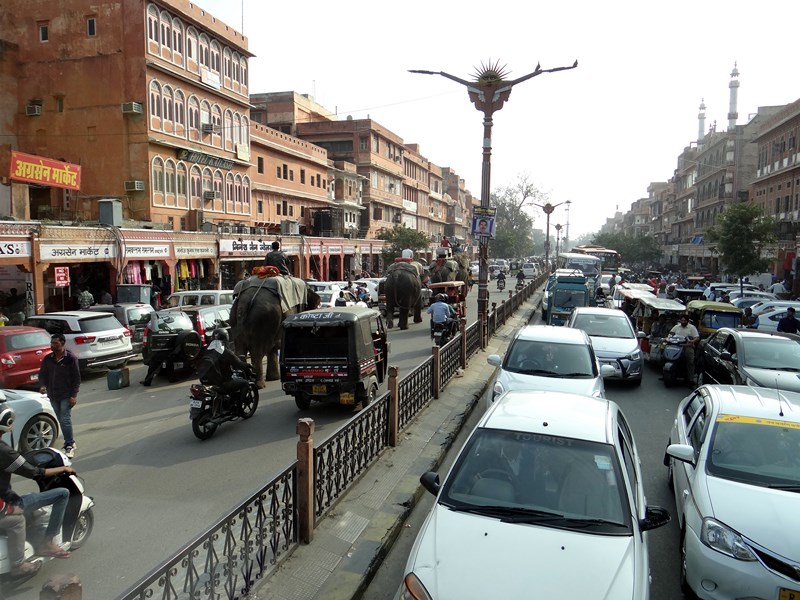
On the opposite side of the boulevard-elephants in the midst of traffic. They banned elephant traffic in Dehli, but here no one regards it as unusual except tourists.
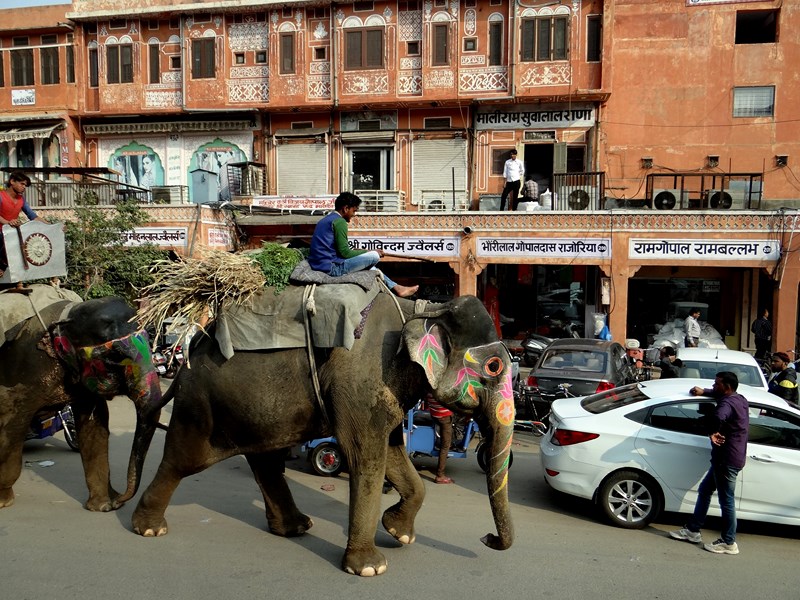
Jaipur is host to an elephant festival every year. Vitor tells us that today is an auspicious day for Hindo weddings and that about 10,000 weddings will take place this week in India because of the positive astrological forecasts.
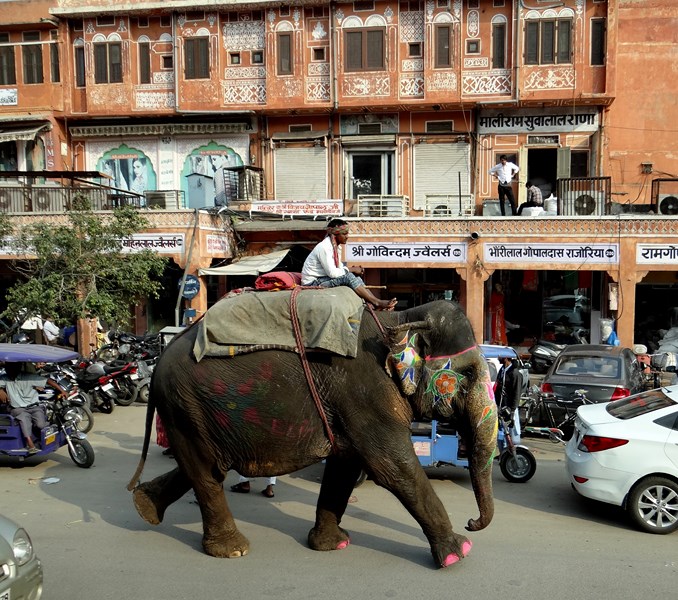
All are painted it seems. Pink toenails on this one.
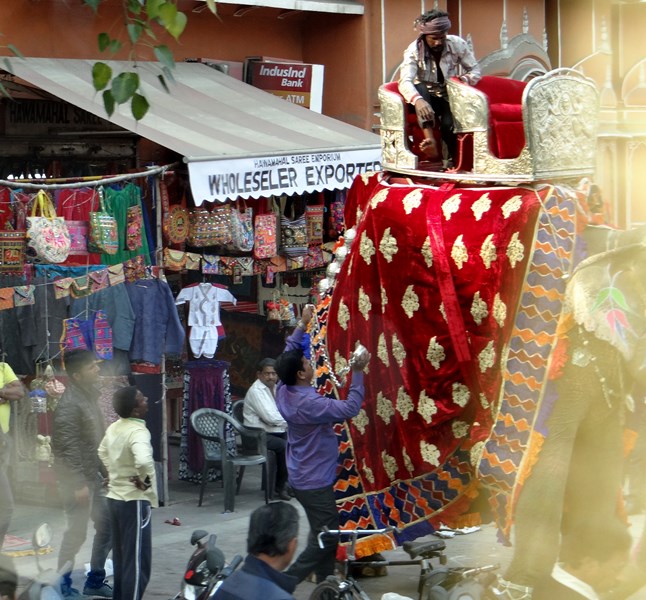
The glare from the window is fearsome but his elephant blanket was so colorful I couldn't resist. He is preparing to go to his wedding.
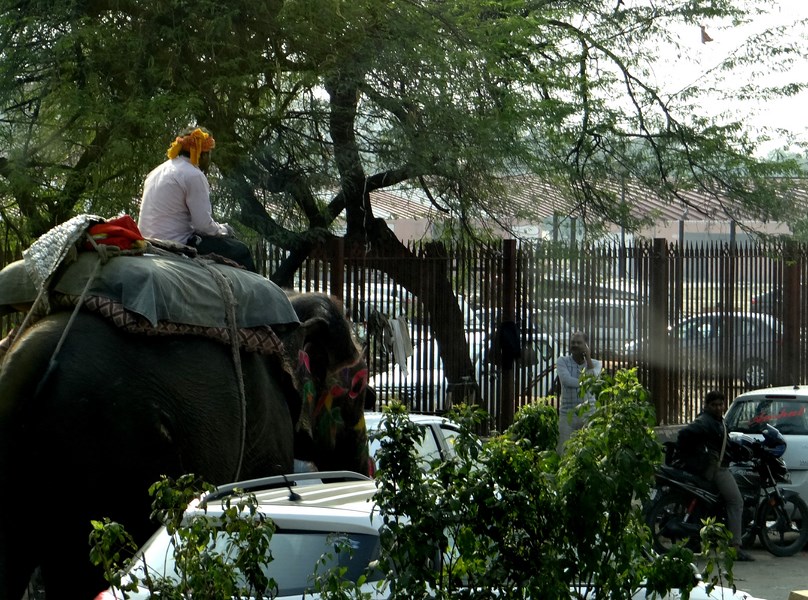
This drover looks as though he carries his bed with him.
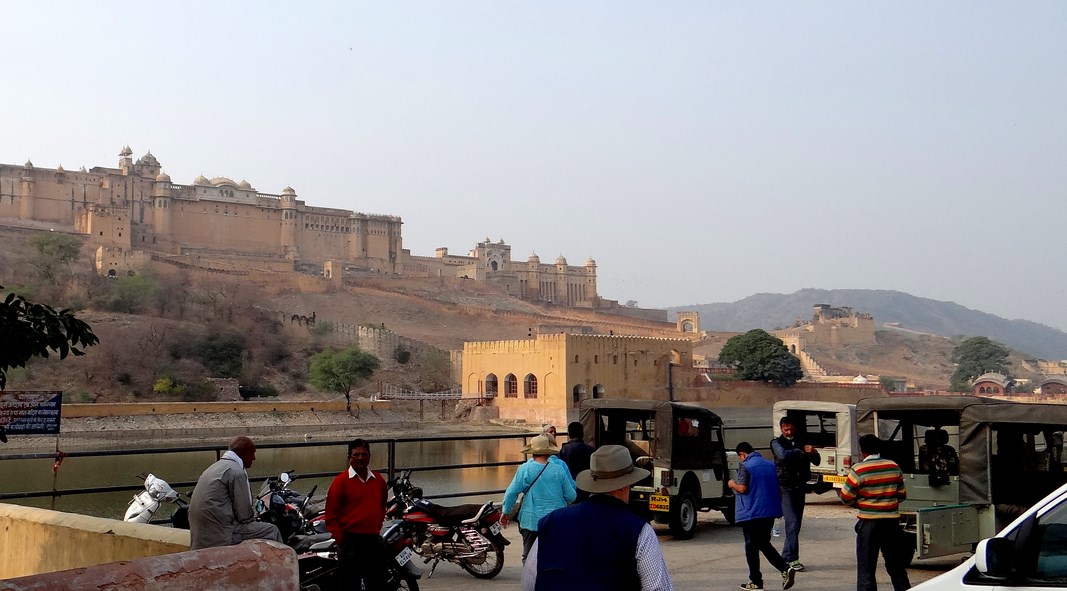
On the outskirts of town is a walled citadel, the Amber Fort-Palace. We load into jeeps to drive us up a winding road as high as we can go.
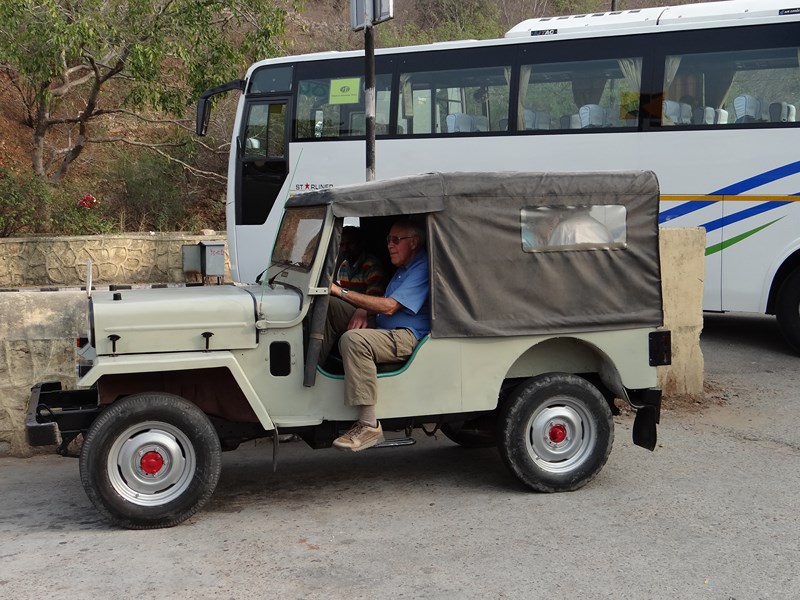
Paul is too tall to fit in the back with the rest of us so he gets a front seat.
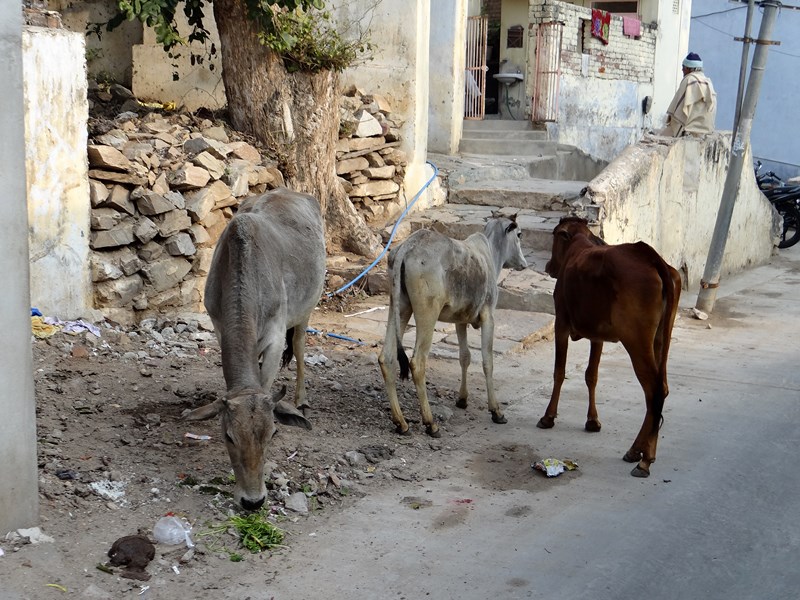
From the open back, I catch my first site of sacred cows since arriving in Jaipur. Ranvir has suggested that to keep people from starving, the cows were religion-ized to prevent the people from killing them all. They can use the milk, of great value as a high protein food, and the cows, in theory anyway, feed themselves.
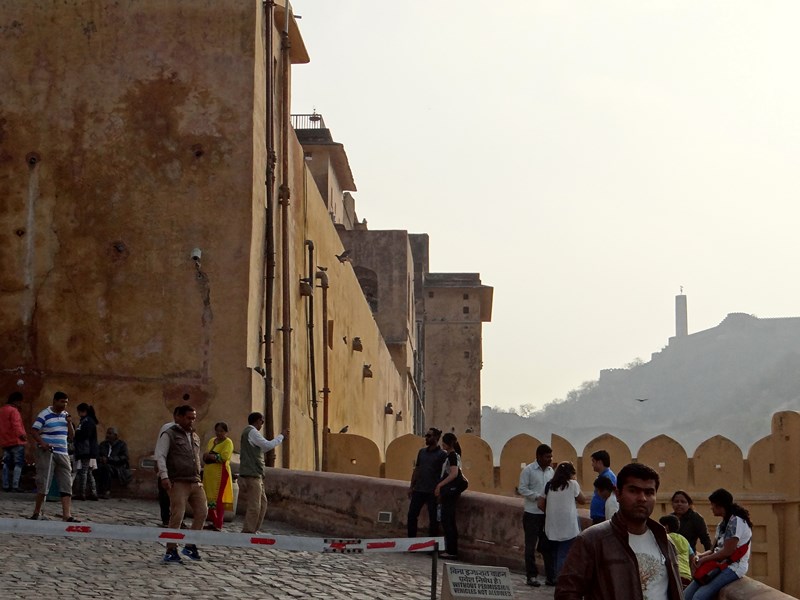
The parking lot is steep and Ranvir warned that we would be walking up, up, an up to view the aspects of the Maharaja's walled fortress that kept his enemies away. It was never besieged and conquered. Theo is not feeling well and decides to stay and sleep in the jeep.
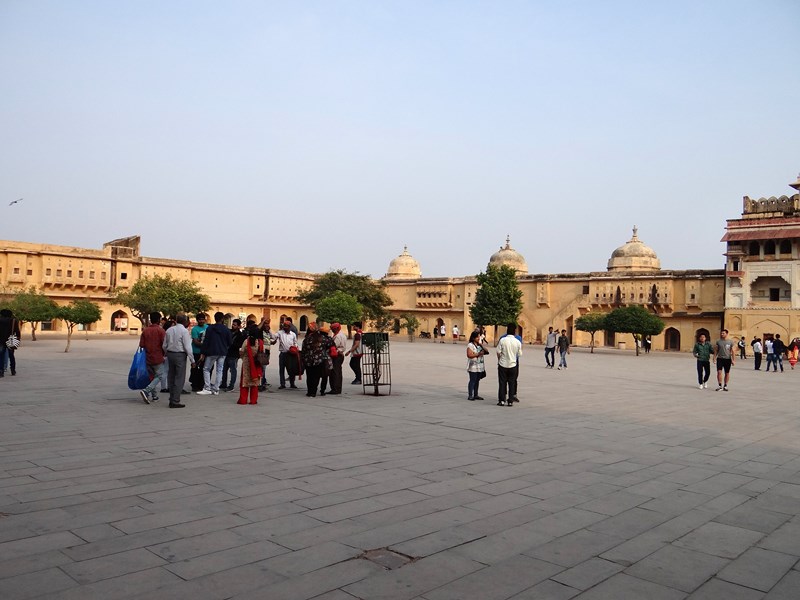
The place is so vast, it can hold an army in the square to fend off enemies.
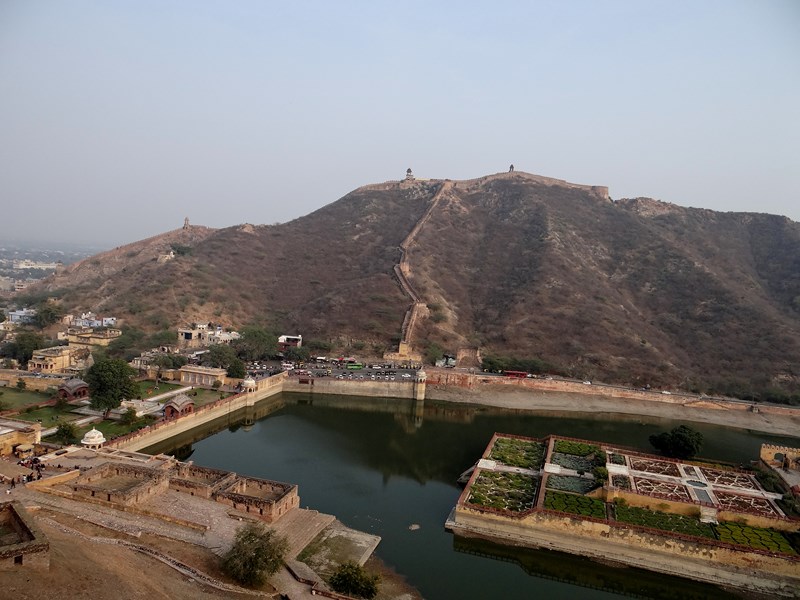
And, those armies, must be fed. At one level looking out, the wall is visible going up over the mountain. It is said to be the second greatest wall next to the Great Wall of China. The well is a lake with floating platforms to grow food augmented by the surrounding forest and wild life.
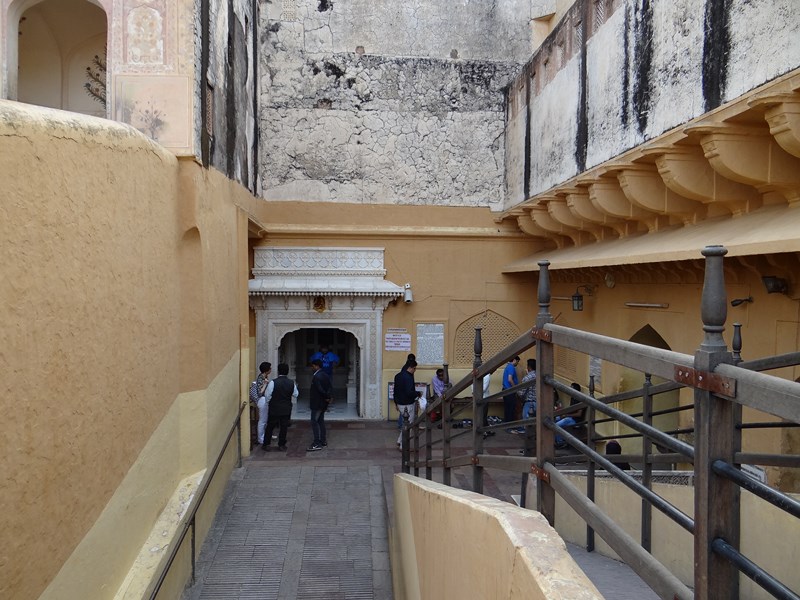
Some are stairs and some are walkways. As we move from level to level we come to the Ganesh Pol, built in 1640 to honor the God Ganesha.
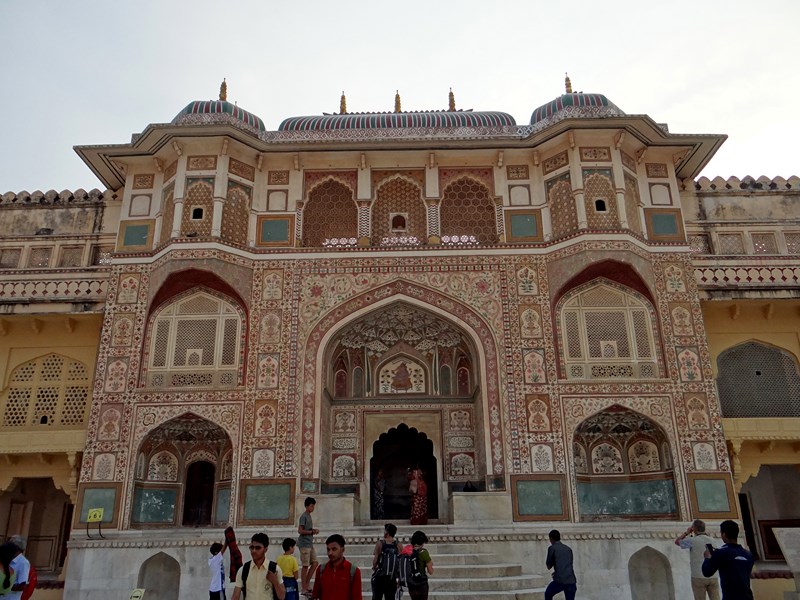
This is the gate to Ganesh Pol, with beautiful frescoes and carved marble and sandstone walls.
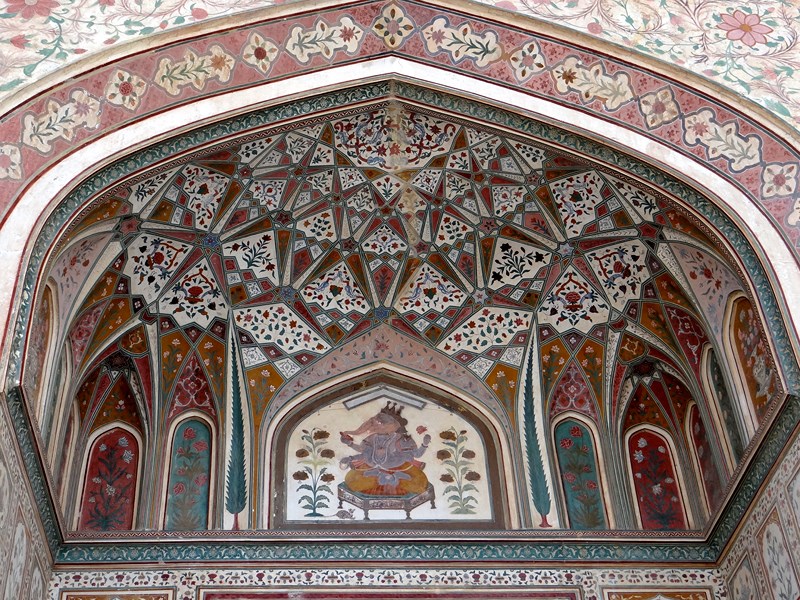
A fresco of Lord Ganesha at the base of this arch. The colors are still vibrant because most were made from natural pigments.
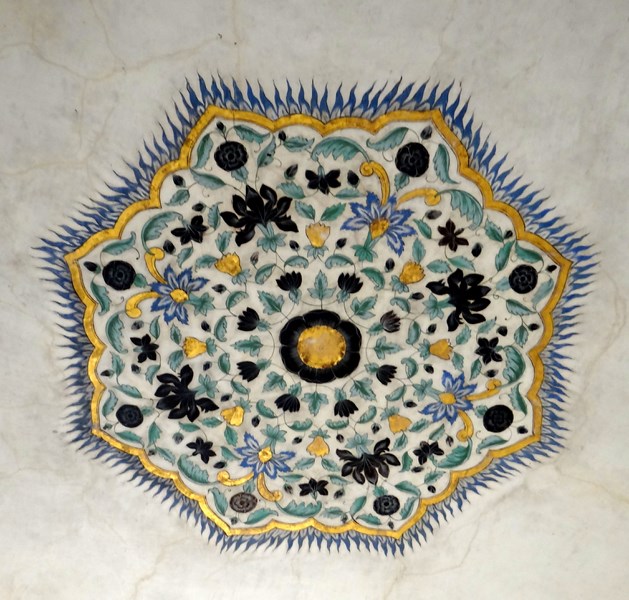
A ceiling fresco.
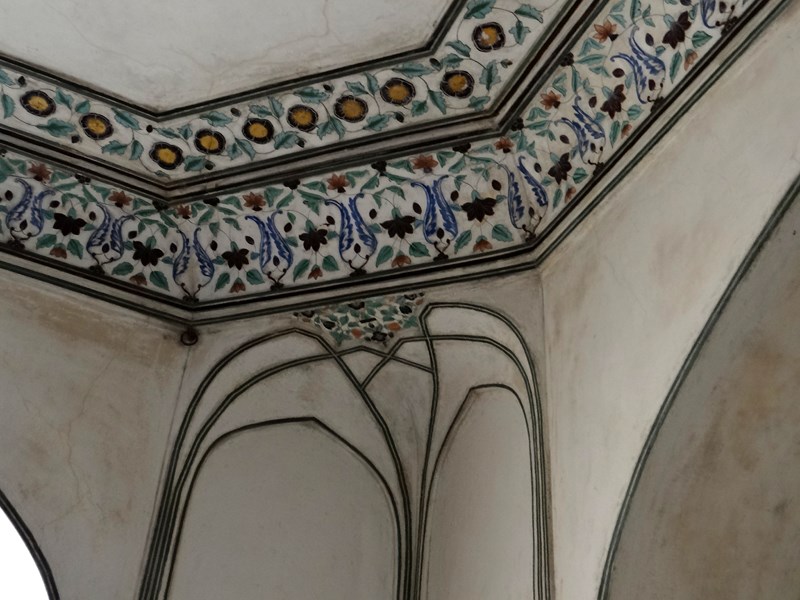
Every spot has some sort of decoration.
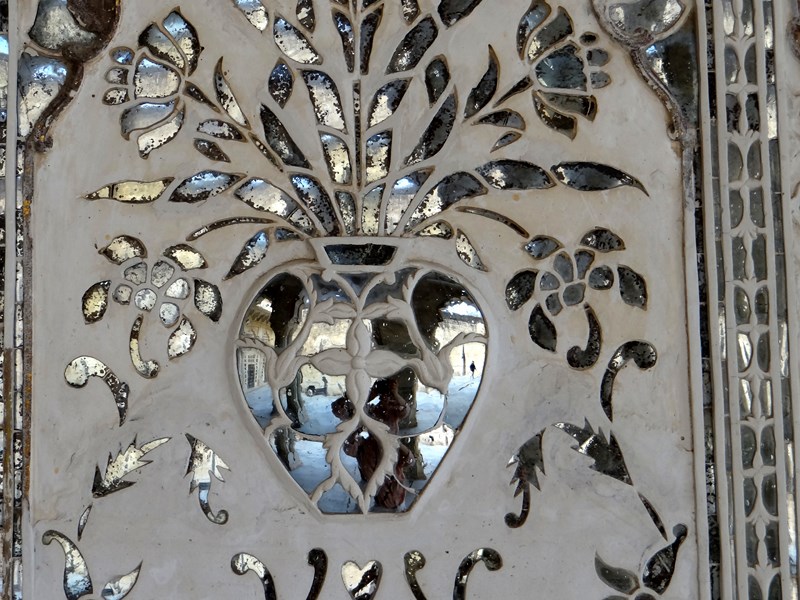
Where outdoor light didn't penetrate, the walls were decorated with reflective pieces of mirrored glass to enhance the candle light.
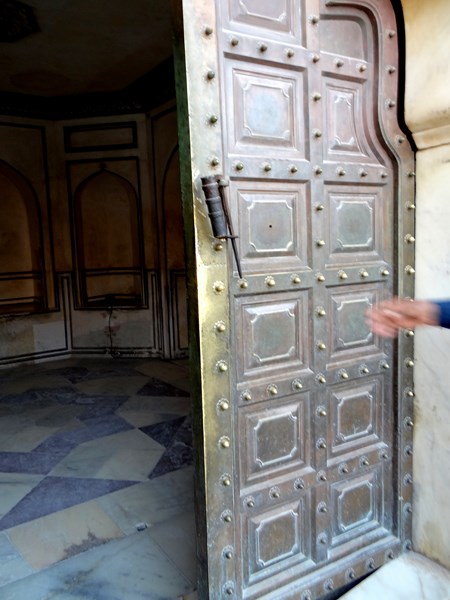
Doors are shaped to the architects' design of the building.
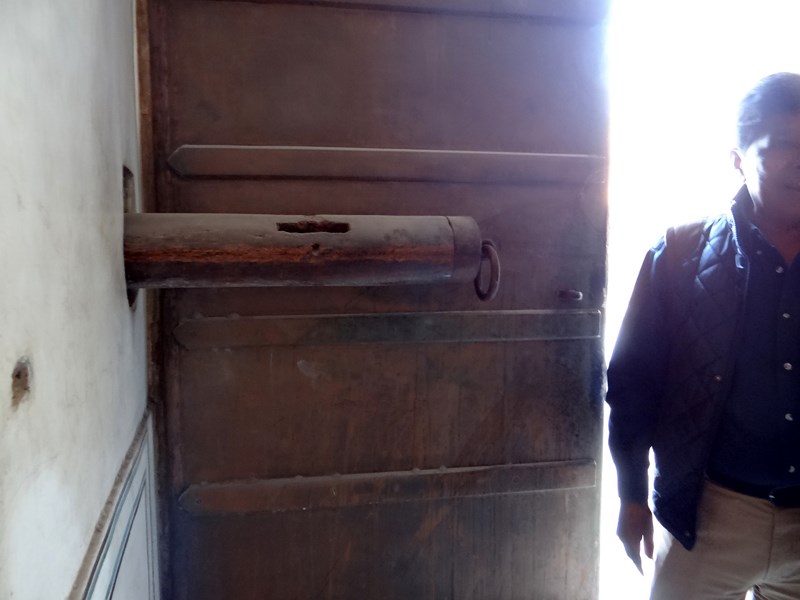
This is one half of the lock, demonstrated by Vinot, that could repel any attack.
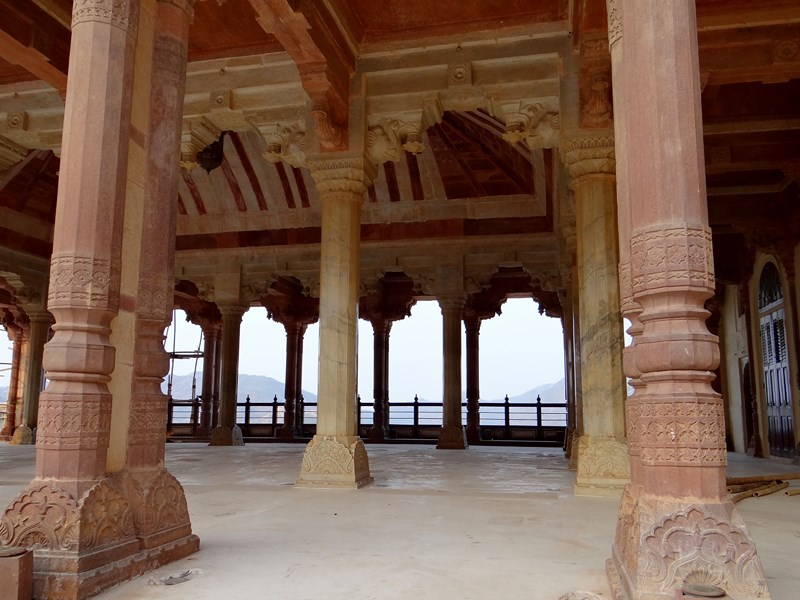
Sandstone pillars, if repeatedly polished with a soft cloth, get a sheen and a hard surface that resembles marble. Only a Maharaja could afford that kind of labor.
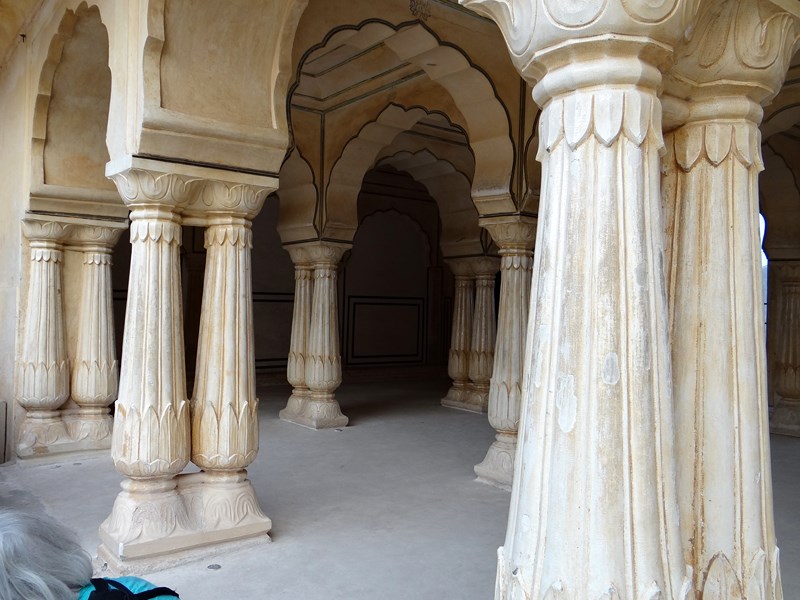
Another set of beautiful arches.
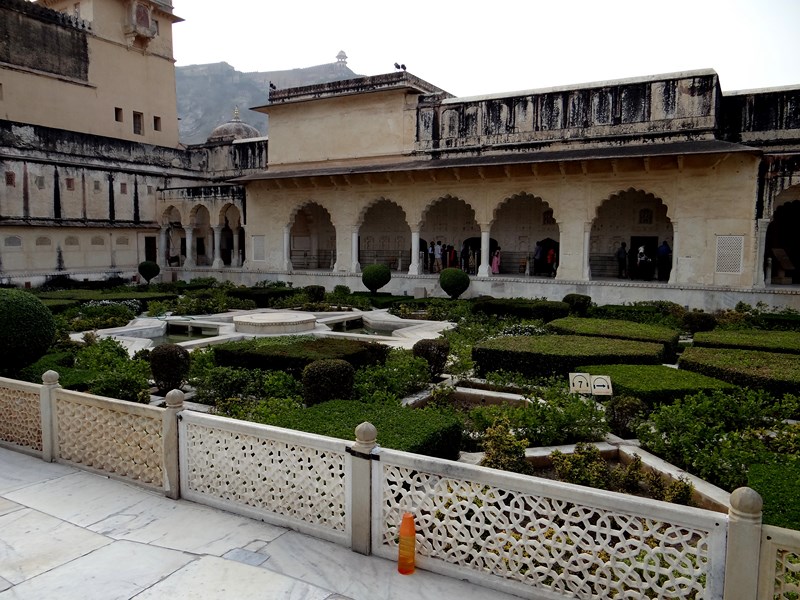
Formal gardens have replaced the playground of the Maharaja's concubines. He had many wives and concubines plus he supported their servants. He most likely had no relations with most of them since they were accepted for political alliances. Other kings would be glad to send him their daughters for their care and protection. This large area was where the women visited and played games and entertained themselves under the watchful eyes of eunuchs.
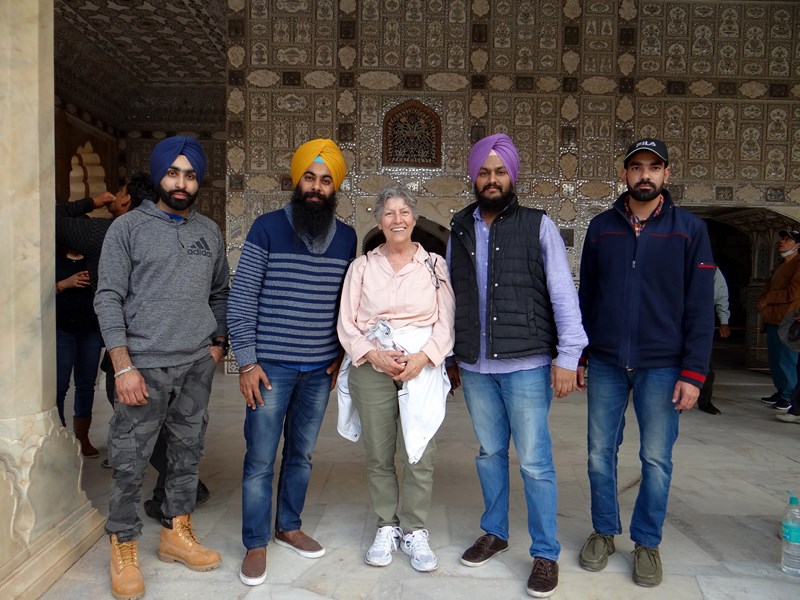
Kathy had her picture taken with these Muslim men, I think because she is blonde and they wanted the picture? And, I asked for my picture after she stepped away. Anyway, aren't they a handsome bunch?
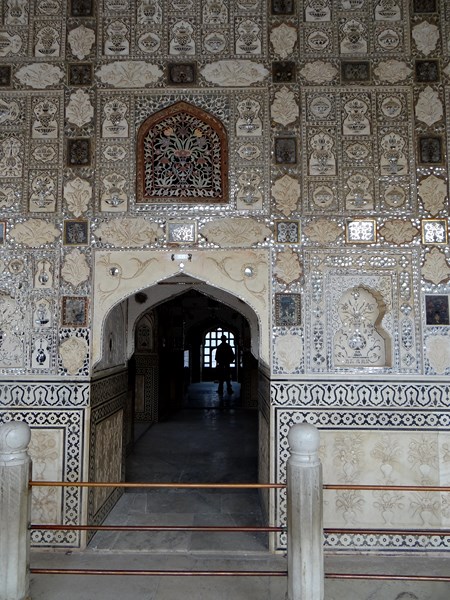
The sparkling mirrored walls do not reveal their true beauty to a camera.
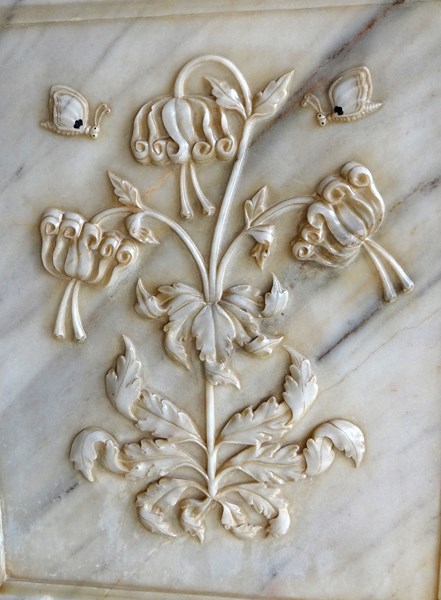
A flowered marble slab has two distinct black spots that are holes through which someone could peek, if I'm remembering correctly.
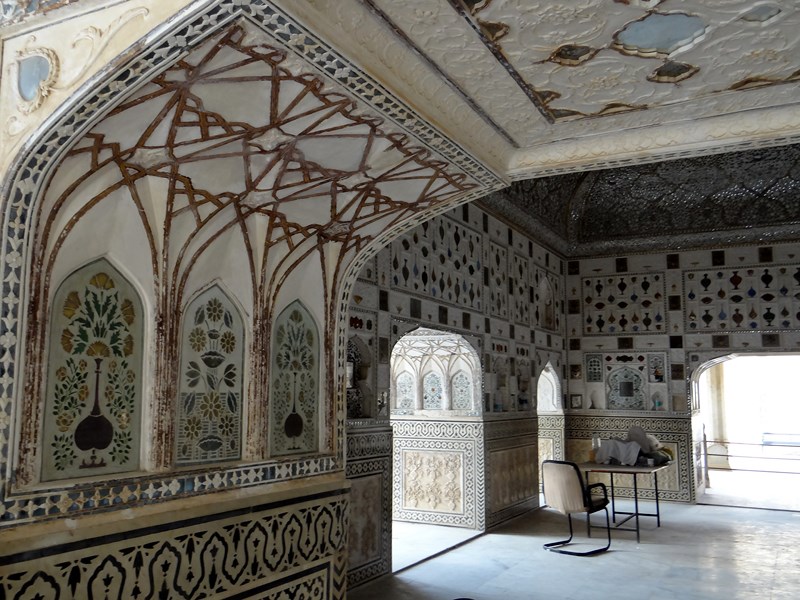
The walls are decorated lavishly and permanently. The rooms are sparse without furniture except for a bed and maybe a luxurious set of curtains or a bath.
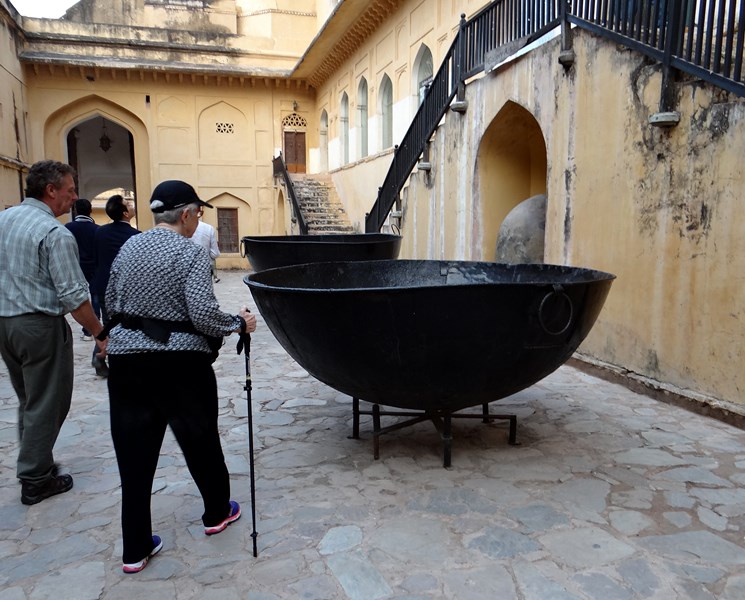
Gigantic kettles were used by the eunuchs to cook meals.
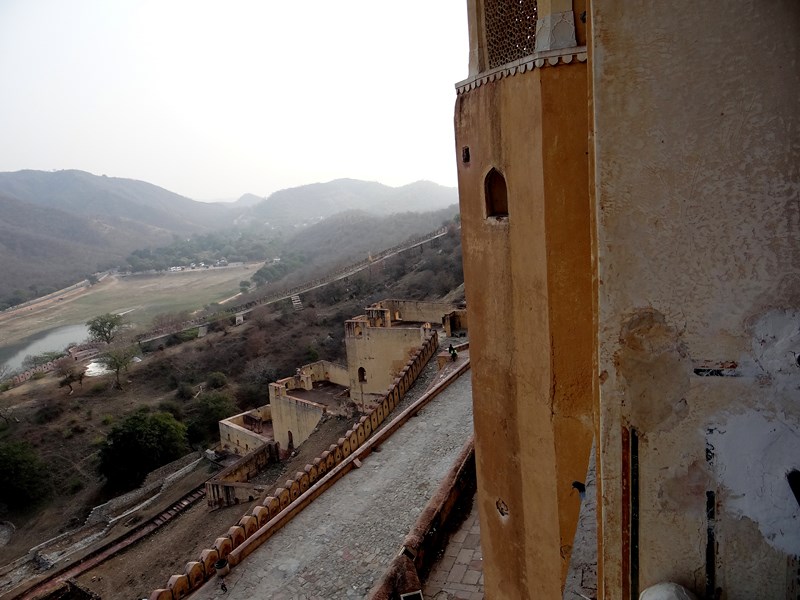
At the highest point we look down, then turn to retrace our many steps.
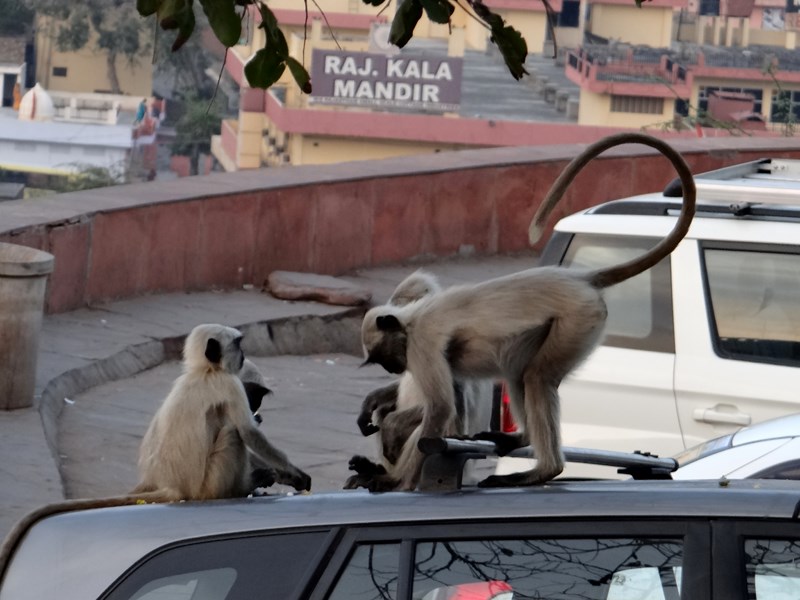
In the parking area, we find the monkeys playing cars.
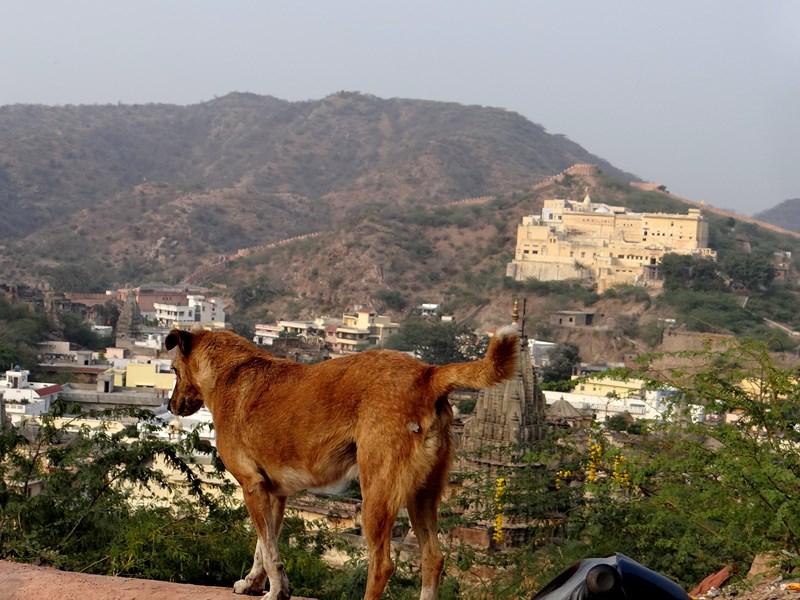
From the lot, we can look over the edge at part of the walled city below.
